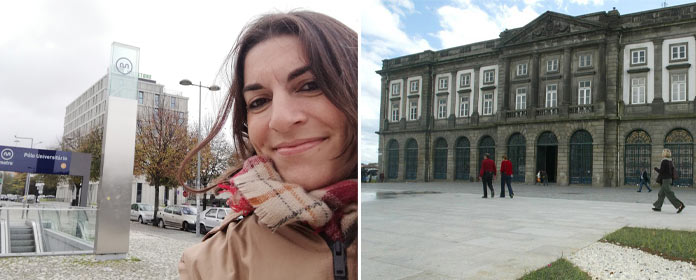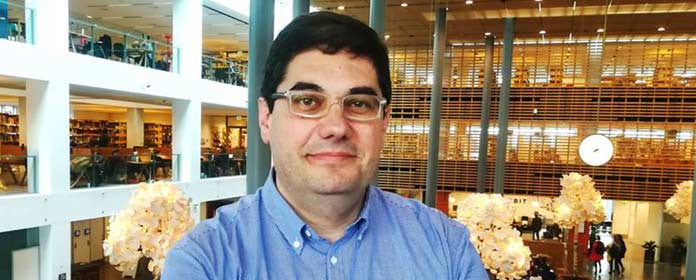"To educate is to seduce with what is valuable."
This was stated by Enrique Rojas at the opening lecture of the University's summer courses.
Enrique Rojas, director of the Spanish Institute of Psychiatric Research, stated that in the society in which we live "to educate is to seduce with what is valuable", since there is a lot of information and little training. A challenge in the knowledge society: the Education of intelligence and will' was the degree scroll of the lecture in which the psychiatrist intervened and which served to inaugurate the summer courses of the University of Navarra. The opening ceremony was also attended by the President of the Government of Navarra, Miguel Sanz, and the President of the University of Navarra, José Mª Bastero.
Enrique Rojas argued that both affective and intellectual life - the two ingredients of personality - need to be educated. " Education is a slow and progressive task that requires not only information but also training. Information is knowledge of data; however, training is criteria, improvement of the personality," he clarified.
For this psychiatrist, after watching eight hours of television, it cannot be said that a person has gained in culture. "On the contrary, they are perplexed and surprised and are incapable of making a synthesis. training is the reception of data that improves and enriches the person".
The author of works such as "Intelligent Love", "The Light Man" or "A Theory of Happiness" insisted that parents have a lot to say in Education. "It is a work of goldsmithing that has to start with the family," he said. But he also recalled that it is necessary to recover a humanist training , so that books occupy an important place. "Reading is to intelligence what exercise is to the body," he pointed out.
The topic of the summer courses of the universities of Navarra, "For the knowledge society", raises, in the opinion of Enrique Rojas, major questions. The most important of these is the place of the individual in this new society characterized by "information bombardment". The psychiatrist explained how the Education of intelligence and affectivity is becoming an exciting and urgent challenge in this new era.
Regarding the role of psychiatrists, the director of the Psychiatric Research Institute compared this discipline to a two-story building: the bottom floor would be psychology and the top floor, psychiatry. "It used to be thought that going to a psychiatrist meant going crazy, but today it is almost like a family doctor in developed countries," he concluded.
Love, according to Enrique Rojas, is the most important element of affectivity, but there is a confusing lexicography around it. "Anything is called love. There are many words related to it: to fall in love, to want, to desire, to like, to seek, to need.... There are many nuances and Education is necessary to know how to distinguish between them," he warned.
Enrique Rojas commented that if until now there were two epidemics in the modern world, drugs and AIDS, "now there is a third one: the epidemic of marital breakups". In this respect, he pointed out that in some countries, such as the USA, Japan, Germany and England, around 50% of couples are broken up.
European Union and urban planning, among the topics of the free summer courses of the University of NavarraAddressing issues on which there is "an abundance of information, but a lack of training" is the goal of the summer courses that the University of Navarra will be offering starting on Monday, the 3rd, according to its coordinator Enrique Banús. So far, 160 registrations have been made "and it is expected that the issue will increase in the coming weeks as they are very well received," he said. The core topic, in the opinion of Enrique Banús, lies "in the fact that the courses are not aimed at experts, but at citizens and university students who are looking for guidance on current issues that are sometimes very difficult to understand".
Javier Castejón, director of the Caja Navarra Foundation, one of the entities sponsoring this project, together with the Government of Navarra and the Pamplona City Council, indicated that "the University is not a Closed preserve and that is why the courses are open to all". The project "Universidades Navarras 2001" is framed under the slogan "For the knowledge society" since, as Enrique Banús pointed out, "it is one of the great challenges of the 21st century and raises great questions".
The European Union and urban planning are some of the topics to be addressed in free summer courses. A total of seven courses will be held until the 21st, with titles such as: "Immigration", "The cinema of the nineties", "New trends in written journalism", "Basque history and culture: an approach" or "Reality and law: current legal issues".
Cultural and recreationalThe program will be complemented with a concert in the Cathedral of Pamplona and the "Day of Music", which will be held at the University of Navarra. Javier Castejón affirmed that with this "we are trying to make the recreational and the cultural compatible".
The concert in the Cathedral of Pamplona will take place on September 21 at 8:30 pm. It will be an itinerant concert in which the music will move through the different chapels of the building and its annexes, playing in each space music related to the place or its architecture. The "Day of Music", according to Enrique Banús, goal to "turn the University into a multipurpose musical space". To this end, on the 15th, between 18:00 and 20:00 hours, classical music will be played in the Central Building of the University; jazz music in the Social Sciences Building and folk music in the Architecture Building.


